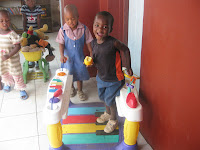Here lies 10 pointers from MY job hunt experience! A list of things I kept telling myself and discovered while looking for formal employment. I was on the hunt for exactly three months and this month I finally got a job, Hurray!!! This is probably why I felt compelled to write this blog post and share what I learnt. Hope it helps someone... :)
Lesson #1
Often you are selling yourself NOT your qualifications. Hoards of people with degrees are unemployed.
- What sets you apart?
- Your character traits?
- Your skill sets?
- Your extracurricular activities?
Lesson #2
CV - Your CV often goes places before you do; work on it.
This pointer is self-explanatory but basically it is essential consider your CV to be your face.
- What does it show?
- What does it say?
- Be conscious of your audience and your competition.
- Employers receive tonnes of CVs, how will yours get to the short list pile?
Lesson #3
Networking - People Matter!
It really is about WHO you know!
Both your strong and weak ties can prove to be very essential on the job hunt. Here lies your support structure and your hope for that extra edge. This may be how you get your foot in the door to begin with. According to the U.S. Bureau of Labour Statistics, 70% of all jobs are found through networking. Your networks are a great information source SO:
- Expose yourself- Network
- Send Emails, Ask Questions
- Do not be afraid to sell yourself. Be confident and STEP Out!
Lesson #4
Morale is Key and Persistence Pays!
It can get depressing and you can get demoralized. The statistics can get you down; many people won’t reply your emails and some will simply bounce back. Many individuals will ask for your CV and the story will end there. Rejection is real and “I’m sorry but we are not able to offer you the position” is likely to happen. DO NOT LOSE HOPE!!!
- Keep Trying.
- Send a second email, don’t be shy! People can get busy and forget to reply.
- Any news even bad news is better than no news.
Lesson #5
Be Productive – Make sure you do something every day. It keeps you busy, engaged and active.
Sitting is counterproductive. This will boost your CV while you hunt and keep you stimulated.
‘Something’ can be nurturing a hobby, sporting activities, writing, skills building, anything!
Purpose to be productive! Have something to say when you meet with potential employers, “I've been sitting at home” does not look good! My pastor always says, ‘Involvement is the key to your call’. Soo.....
- Keep busy - (this includes 'job hunt' activities)
- Get involved somewhere - clubs, societies
- Volunteer!!!!.
Lesson #6
Interviews are both formal and informal.
Everyone you meet is a potential employer. Always be on your A GAME!!!
Lesson #7
Carry a copy of your CV at all times. You never know!
Lesson #7 is a direct follow on from lesson #6. I took my grandmother to the dentist one day and during her consultation the dentist and I got to talking. He asked me what I was doing and asked me to leave a copy of my CV with the receptionist. I didn't have a copy on me and needless to say, Lesson Learnt!!!
Lesson #8
Be ready to answer the tough questions.
- What exactly do you want?
- Time-frames?
- Availability?
- Salary?
- Your life plan?
- Strategy?
- And of course the annoying ones……. “How’s the Job Hunt?” …..ummmm I don’t know “Fun?”
Lesson #9
Dressing is important (or so I've been told).
It contributes a great deal to how you are perceived. When you enter a room it’s not your eloquent use of the English language that interviewers are looking at! In the Zimbabwean context I have also been told that trousers can be offensive/ intimidating. I suppose this one lies mostly with your discretion.
Lesson #10
Be Prepared to FIGHT!
It’s a dog eat dog world out there. Your mental state is important. You will often be forced to prove yourself, be ready! HOLD ONTO HOPE. and whatever you do Do not give up!!!
XOXO
Chido Dziva Chikwari
Sooo for three months I volunteered with an amazing charity, I joined a book club, I joined toastmasters, I wrote, I did errands at home, I upped my church attendance, I kept myself busy!! I met a lot of people who offered to help. I sent a lot of emails (my CV mostly) and I applied for quite a number of vacancies. I didn’t get responses from many of them. I did have many moments of despair (3 months isn’t too long but as the days pile up inclination to worry increases) and what kept me going was my faith; knowing that God had a plan and that things were going to work out eventually. If I didn’t get a specific job then it wasn’t for me anyway.
I really hope this helps somebody and hopefully I will be writing about my first ever work experience after graduation soon!
Many thanks to all my friends and family for all the pressure and “How’s the Job hunt going?” questions. LOL
Your support and encouragement kept me going. To those of you that connected me with potential employers, asked around for me, sent me links, and took me out….Thank YOU! May God bless you all….
LET’S SEE WHATS NEXT!!!
Biblical Reference
Philippians 1:6
For I am confident of this very thing, that He who began a good work in you will perfect it until the day of Christ Jesus.
Isaiah 40.31
but those who hope in the LORD will renew their strength. They will soar on wings like eagles; they will run and not grow weary, they will walk and not be faint.






















